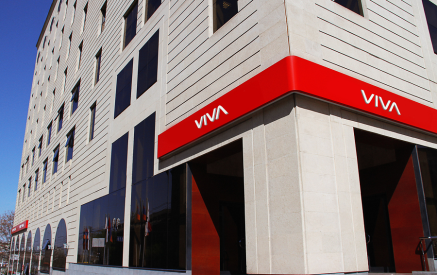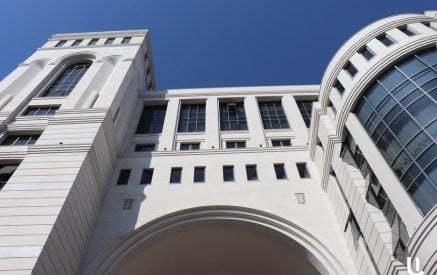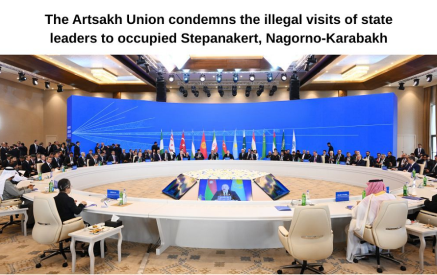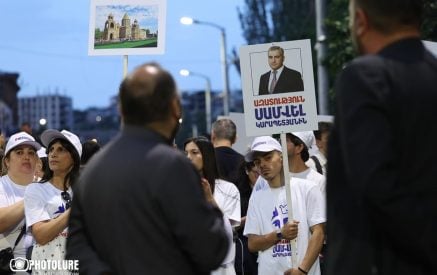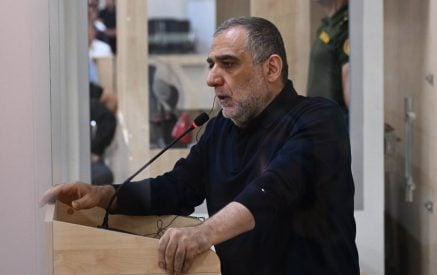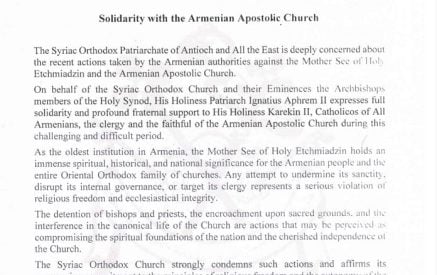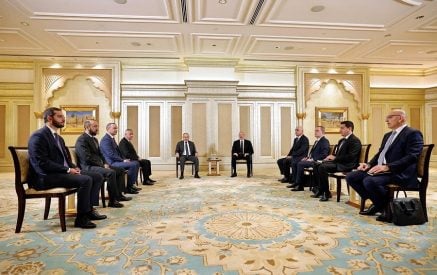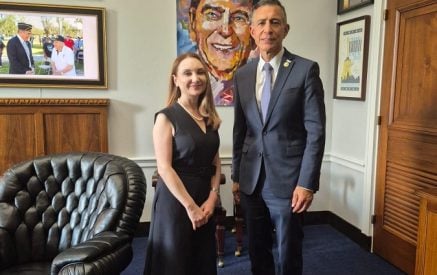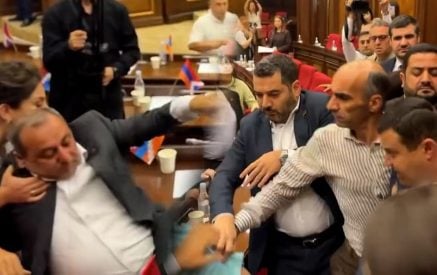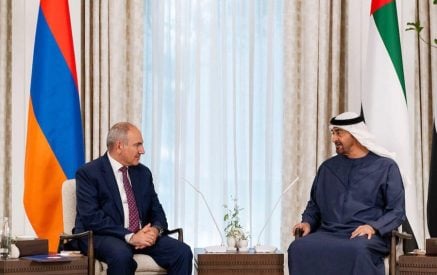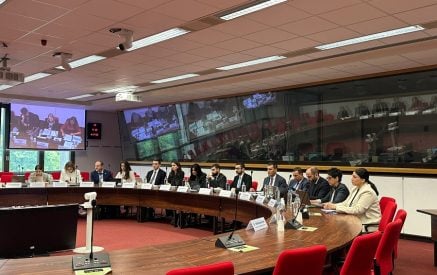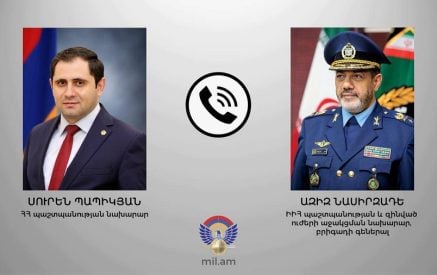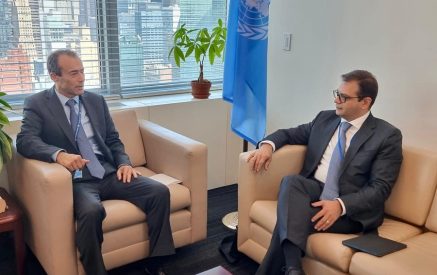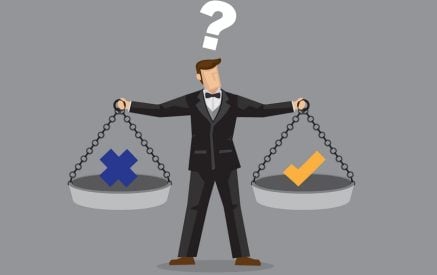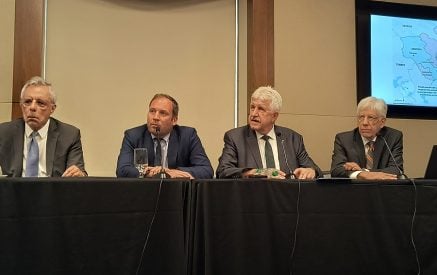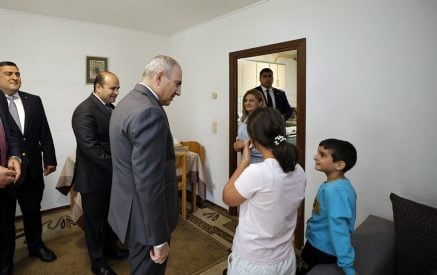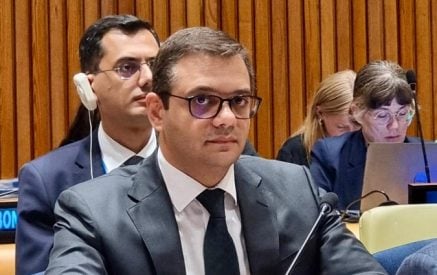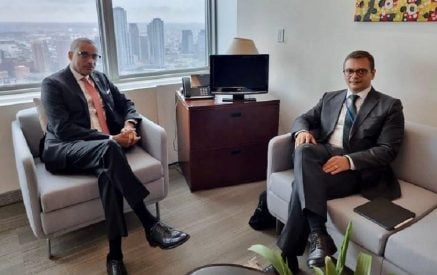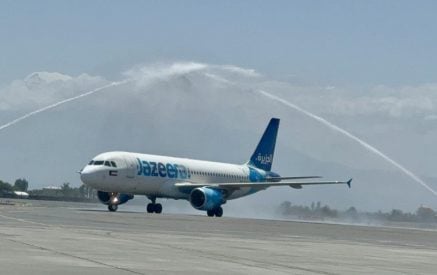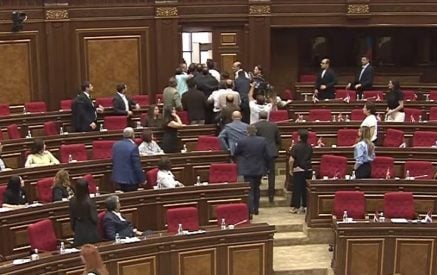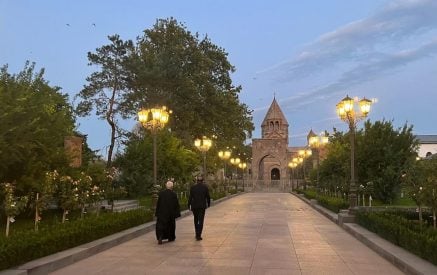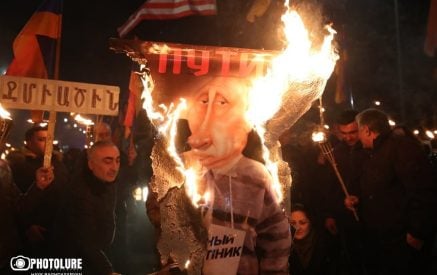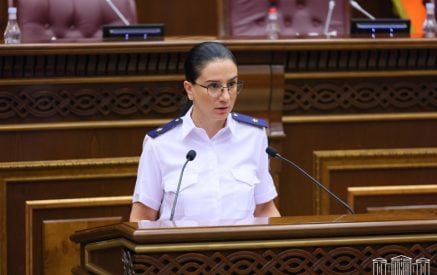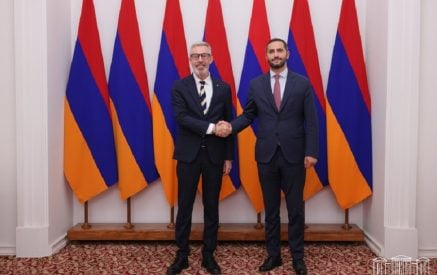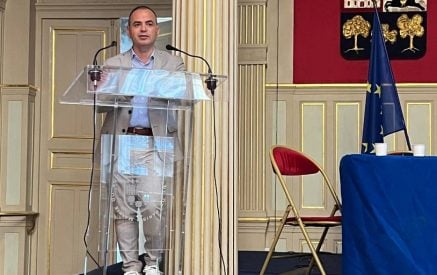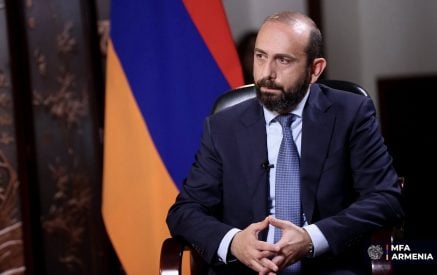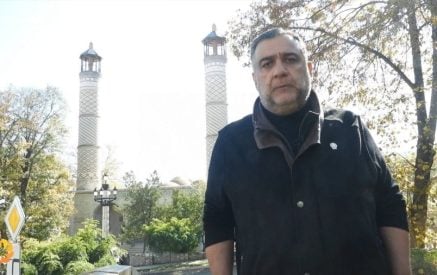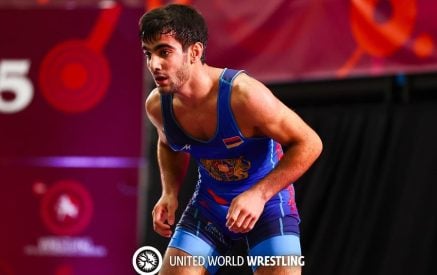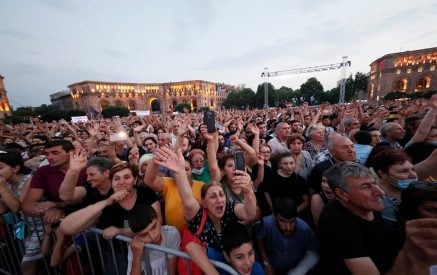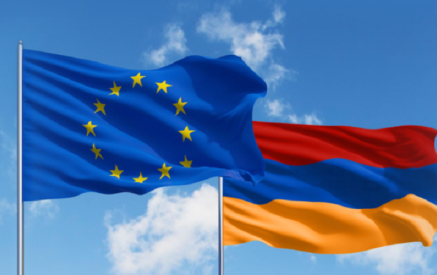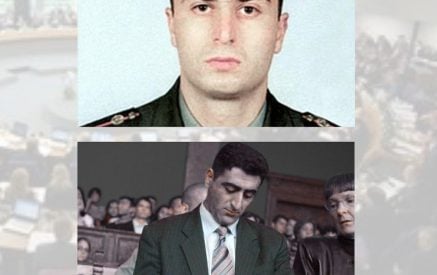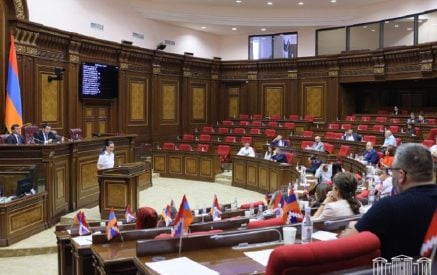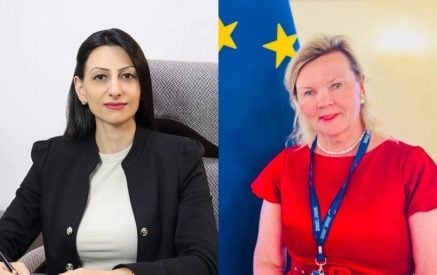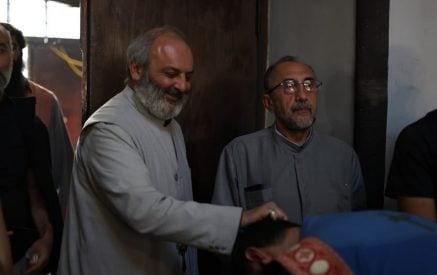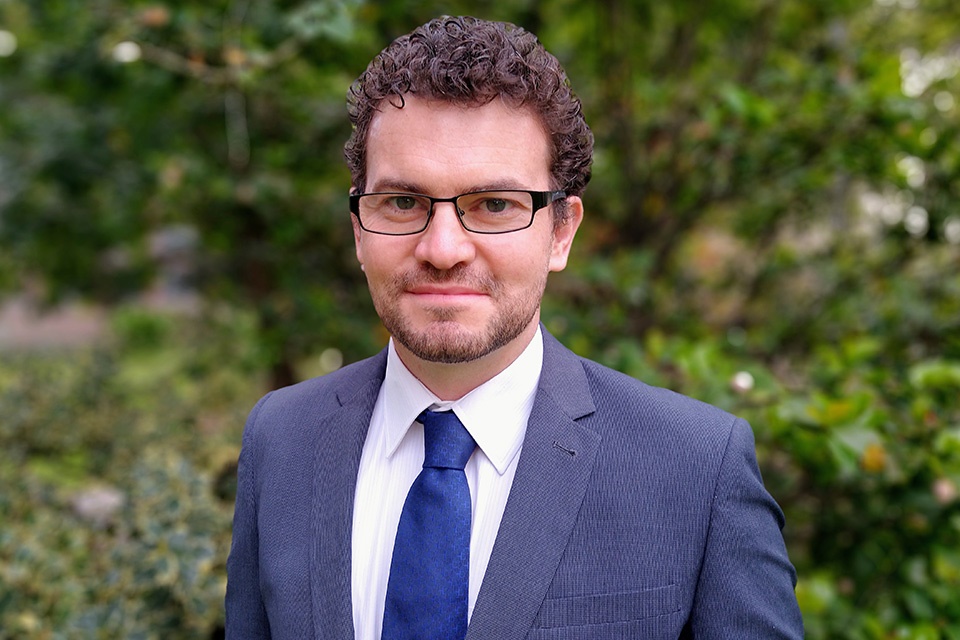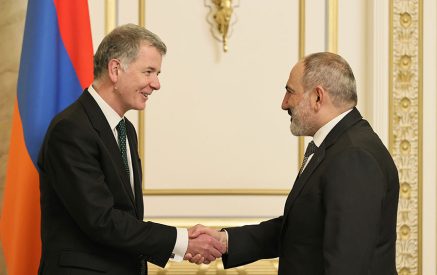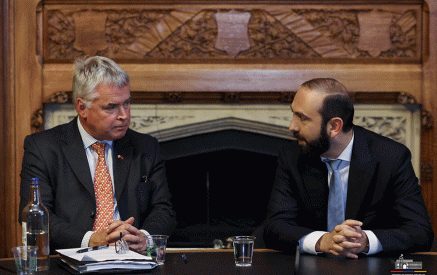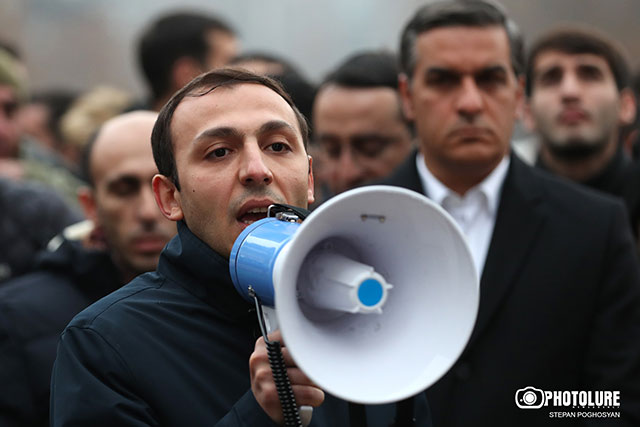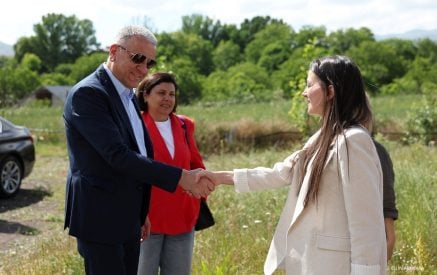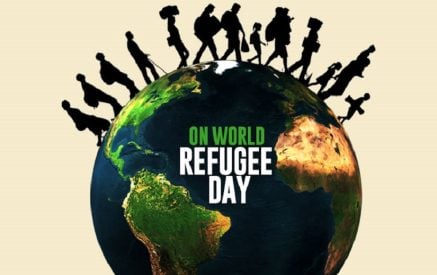Ambassador of the United Kingdom of Great Britain and Northern Ireland to Armenia John Gallagher gave an interview to Aravot
–Mr Ambassador, in November 2021 the UK hosted the UN Climate Change Conference in Glasgow. According to experts, it was the largest international conference ever hosted in the UK. What were the outcomes? Will there be a breakthrough in the fight against climate change? How will the countries, particularly the developing ones that have insufficient financial resources, overcome the challenge of phasing out coal power and moving to a green economy?
– As you say, hosting COP26 in Glasgow last month was a huge undertaking for the UK, bringing together tens of thousands of people from nearly 200 countries. I’m delighted that the parties were able to reach a landmark agreement – the Glasgow Climate Pact – which keeps the goal of limiting global warming to 1.5°C within reach. However, it will continue to require a concerted and immediate effort from all countries to make this a reality.
Read also
The Glasgow Climate Pact will speed up the pace of climate action. Over 90% of world GDP is now covered by net-zero commitments. For the first time, a global position was agreed on phasing down the use of coal power. All countries agreed to revisit and strengthen their 2030 emissions targets, known as Nationally Determined Contributions (NDCs), in 2022. 153 countries already put forward new NDCs at this year’s Conference. I’m very pleased that Armenia was among them, and that the Armenian government has committed to accelerate its target of a 40% reduction in emissions, bringing this forward to 2030.
I would say that climate action is not a trade-off between cleaning up the environment and developing our economies. Solar and wind are already cheaper than coal power in two-thirds of the world and are predicted to undercut coal and gas almost everywhere by 2030. Clean growth represents the most significant economic growth opportunity of the 21st This will create employment opportunities in industries of the future, while also addressing the urgent challenges of public health, climate change, and biodiversity loss. Countries which are most successfully able to adapt and harness these opportunities will be in a strong position to prosper as the global economy increasingly shifts away from fossil fuels.
– The British Embassy supports programmes in Armenia in a number of areas such as democratic and economic reform, human rights, defence, and education. How effective those programmes are in your opinion? What kind of programmes will the UK support in Armenia in 2022?
-Over several years the UK has funded a range of programmes to support Armenia’s governance and economic reforms, to improve stability and increase economic opportunities for all. We are pleased to have been able to share UK experience and expertise to support the Government of Armenia’s reform efforts, and to help contribute to the progress Armenia has made on governance and democratisation.
To give just a few examples, recent and ongoing UK programmes have included support to the Government of Armenia towards developing a more transparent and inclusive economic environment through improved tax administration and taxpayer services, support to customs administration reforms, and increasing access to international markets for Armenian exporters through the use of e-tools.
We have also funded programmes to increase the participation and representation of women in the political and economic spheres, and provided support to strengthen the institutional effectiveness of the National Assembly through the establishment of a Research and Training Centre.
Our largest current project, implemented through UNDP and UNICEF, is focused on strengthening stability and resilience in border communities in Vayots Dzor, Gegharkunik and Syunik. This has included vocational training, supporting municipalities in development and implementation of disaster risk management plans, and establishing a helpline for specialists to provide psychosocial support for vulnerable families.
Working with the British Council, we have also funded Learning Hubs in regional centres across Armenia to support improved standards of English-language tuition.
So I believe that the UK is making a valuable contribution to Armenia’s economic and democratic development. I would expect our programmes in 2022 to focus on similar sectors. We will continue to work closely alongside government, parliament and the business sector to identify areas in which the UK’s experience can make a positive difference.
– On 6 December, you met with the President of the Republic of Armenia Armen Sarkissian, about which a very short message was published. However, in response to President Armen Sarkissian’s tweet about that meeting, you responded that you liked the thought-provoking conversation on issues of common interest. Would you please share some information, in particular, what did you discuss about security issues?
-President Sarkissian and I spoke on a range of topics in our most recent meeting, including the regional and domestic political environment, his visit to the UK for the COP26 Climate Conference, and upcoming plans for further international engagement. As you may expect from a Head of State, the President is interested in many issues of relevance to Armenia, including in the diplomatic, scientific and economic fields. Because of this, my conversations with him have always been wide-ranging and thought-provoking.
-The Armenian authorities are talking about opening a peaceful era with Azerbaijan and Turkey, while a year after the war we still have Armenian captives illegally detained in Azerbaijan, Azerbaijani troops are in the sovereign territory of Armenia, and the President of Azerbaijan continues to present territorial claims to Zangezur, Yerevan and other Armenian territories. What is the United Kingdom’s position on these issues?
–The UK supports the development of peaceful relations in the region. It is vital for the region’s future stability and prosperity that ongoing issues are resolved through a negotiated, peaceful process. I’m pleased that direct contact has been established and discussions are continuing between Armenia and Azerbaijan with the OSCE Minsk Group Co-Chairs, through the trilateral working group process, and in the margins of other international events and conferences. It is disappointing that the Armenian and Azerbaijani Foreign Ministers were unable to meet in the margins of the OSCE Ministerial Council about two weeks ago. But I believe that continued engagement and negotiation is the only way to resolve the outstanding bilateral issues which you mentioned. We strongly encourage further progress on humanitarian issues such as the return of all prisoners of war and detainees, demining, and investigations into all allegations of human rights violations – as well as other outstanding issues such as border delimitation and demarcation. We will continue to raise these issues with the Government of Azerbaijan, as we do with Armenia.
–After the signing of the trilateral document on 9 November, we see that new formats are being brought forward, such as “3 + 3”, which, according to political scientists, can be very detrimental to What are your views on this? And, in your opinion, what is the preferred format for resolving the Artsakh issue?
-The UK’s position on the format for resolving the Nagorno-Karabakh conflict remains the same. The UK wants to see a comprehensive peace settlement on Nagorno-Karabakh reached as soon as possible, on the basis of the Minsk Group Co-Chairs’ Basic Principles. We fully support the efforts of the American, French and Russian Co-Chairs and encourage the sides to engage constructively in the negotiation process.
The UK does not have an official view on formats for discussion of other issues, including the proposed “3+3” format. Engagement with different regional formats is for the countries themselves to decide. I saw Prime Minister Pashinyan’s recent remarks that any new groupings should not duplicate areas of negotiation already being discussed through existing formats, such as the OSCE Minsk Group and ongoing trilateral processes. To me, that seems a sensible and legitimate position to take.
–After the recent trilateral meetings between Azerbaijan, Armenia and Russia in Moscow, it seems that the start of delimitation and demarcation processes is becoming more certain. Experts say that this process is necessary and important for achieving lasting peace. As a representative of an influential country in the world, how do you imagine such a process when the rights of the people living in those areas are violated from the security perspective? Prior to demarcation and delimitation, there are no security zones, people can not use their pastures, orchards, springs․
-I think some of the humanitarian issues you mention are precisely why continued dialogue on border delimitation and demarcation is so important, in order to provide more security and stability to populations in border areas and beyond. The recent incidents close to the border are concerning, and the use of force to resolve border disputes is absolutely not acceptable. We call for an end to any provocative actions and encourage dialogue to resolve all outstanding issues between the two countries. I also hope that the OSCE Minsk Group Co-Chairs will be able to visit in the near future to continue their work to promote a lasting and sustainable peace in the region.
Lousine BUDAGHYAN


